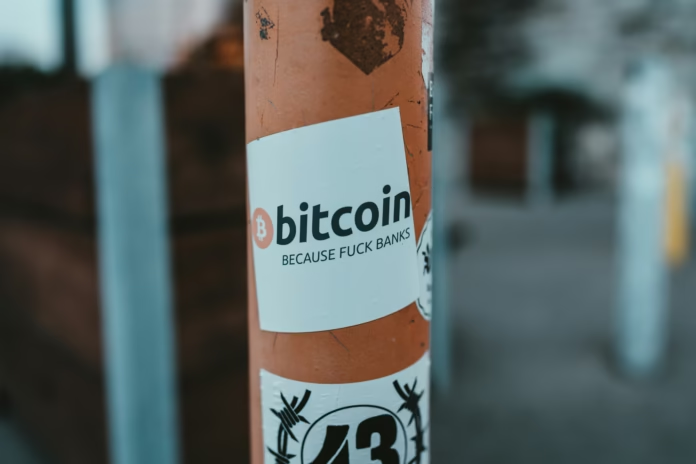The Texas House of Representatives made financial history this week by passing groundbreaking legislation that would establish the nation’s first state-managed Bitcoin reserve. The move, which cleared the House with bipartisan support, positions the Lone Star State at the forefront of governmental cryptocurrency adoption and could spark similar initiatives across the country.
The proposed Texas Bitcoin Reserve represents more than just a symbolic nod to cryptocurrency enthusiasts. State legislators have framed it as a strategic financial decision aimed at protecting Texas’ assets from the eroding effects of inflation and diversifying beyond traditional treasury holdings.
“This isn’t about being trendy—it’s about being prudent,” explained bill sponsor Representative Mark Dorazio during floor debates. “With the Federal Reserve printing trillions and inflation eating away at our purchasing power, we need to explore alternative stores of value that can’t be debased by government policy.”
The legislation would allocate up to 1% of Texas’ $27 billion rainy day fund—approximately $270 million—to acquire and hold Bitcoin as part of the state’s long-term investment strategy. Treasury officials would be authorized to purchase Bitcoin directly or through regulated financial instruments like Bitcoin ETFs.
Texas’ move toward cryptocurrency reserves builds on its existing reputation as a hub for Bitcoin mining and blockchain innovation. The state has become home to numerous mining operations attracted by its deregulated power grid and abundant renewable energy sources.
“This legislation completes the circle,” noted University of Texas finance professor Alan Winston. “First we became the capital of Bitcoin mining. Now we’re positioning ourselves as the capital of Bitcoin finance. It’s a natural evolution for a state that’s always valued economic independence.”
The proposal has drawn support from both free-market Republicans and technology-focused Democrats, creating an unusual political alignment. Opposition has come primarily from fiscal conservatives concerned about cryptocurrency volatility and progressive lawmakers wary of environmental impacts from Bitcoin mining.
The bill includes several provisions designed to address concerns about price volatility and security:
- Bitcoin holdings would be custodied through a combination of regulated exchanges and cold storage solutions
- No more than 10% of the allocation could be purchased in any single quarter to dollar-cost average the position
- The Comptroller’s office would be required to provide quarterly reports on the reserve’s performance
- Funds could only be converted back to dollars through approved liquidity providers
“We’ve built in safeguards to ensure this is done responsibly,” said Representative Dorazio. “This isn’t about speculation—it’s about establishing a long-term position in what we believe will be an increasingly important asset class.”
Texas’ move reflects a growing trend of state governments taking the lead on cryptocurrency policy while federal regulators continue debating comprehensive frameworks. Several other states have begun exploring similar initiatives:
- Arizona is considering a bill to allow tax payments in Bitcoin
- Colorado already accepts cryptocurrency for certain state fees
- Wyoming has established a comprehensive regulatory framework for digital assets
“States are becoming the laboratories of democracy when it comes to crypto policy,” observed Sarah Wallace, director of the State Blockchain and Digital Assets Initiative. “What starts in Texas could quickly spread to other states looking to modernize their financial operations.”
The cryptocurrency industry has hailed the Texas legislation as a watershed moment for institutional adoption. “When a state the size and economic importance of Texas makes this move, it sends a powerful signal to markets worldwide,” said Michael Saylor, executive chairman of MicroStrategy.
Banking analysts suggest the move could pressure other large states to consider similar reserves, particularly those with significant technology sectors or concerns about dollar depreciation. Some experts speculate that sovereign wealth funds and national treasuries may eventually follow suit.
Critics, including several prominent economists, warn that the plan exposes state finances to unnecessary risk. “Bitcoin remains a highly volatile asset with no intrinsic value,” argued Nobel laureate Paul Krugman in a recent op-ed. “This is gambling with taxpayer money dressed up as innovation.”
The bill now moves to the Texas Senate, where it faces an uncertain but potentially favorable path. Governor Greg Abbott, a longtime supporter of the state’s cryptocurrency industry, has indicated he would sign the legislation if it reaches his desk.
If fully implemented, the Texas Bitcoin Reserve could begin accumulating digital assets as early as Q1 2025. State officials emphasize this would be a multi-year experiment rather than an all-in bet on cryptocurrency.
“This is about thoughtful diversification, not replacement of our traditional reserves,” stressed Texas Comptroller Glenn Hegar. “Just as we hold gold and other alternative assets, Bitcoin represents another tool in our financial toolkit.”
As the debate continues, all eyes remain on Austin. The Texas experiment could redefine how governments worldwide approach digital asset management in an increasingly uncertain economic landscape. Whether it succeeds or fails, one thing is certain: the era of state-sponsored cryptocurrency adoption has officially begun.
